Cannes Film Festival 2024: Key Takeaways and talking points of the 77th edition
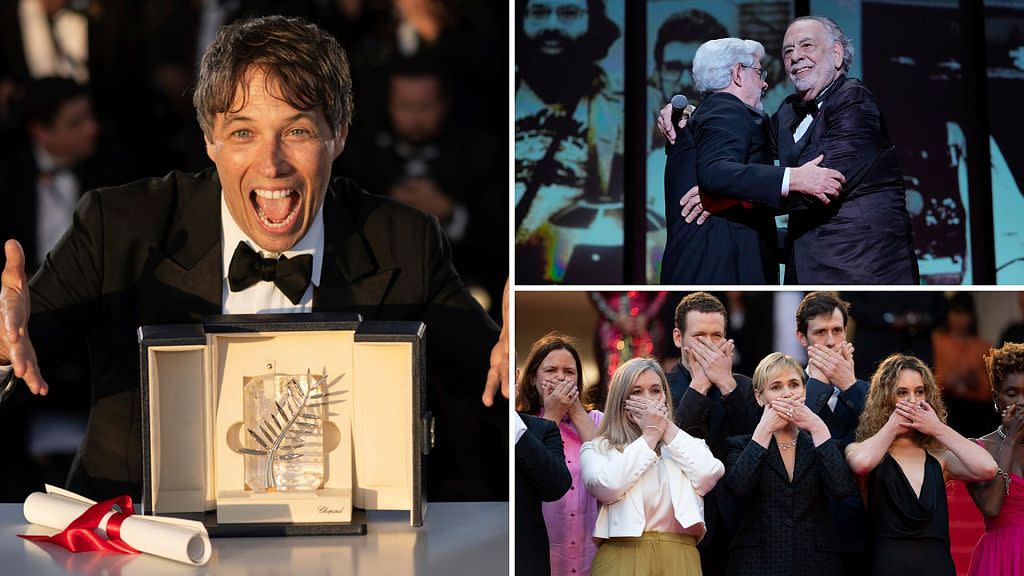
The 77th Cannes Film Festival is over, and they’ve rolled up the red carpet.
Time to look back at the 10 main talking points from this year’s edition, after a broadly satisfying set of results.
#MeToo scandals and politics take a backseat
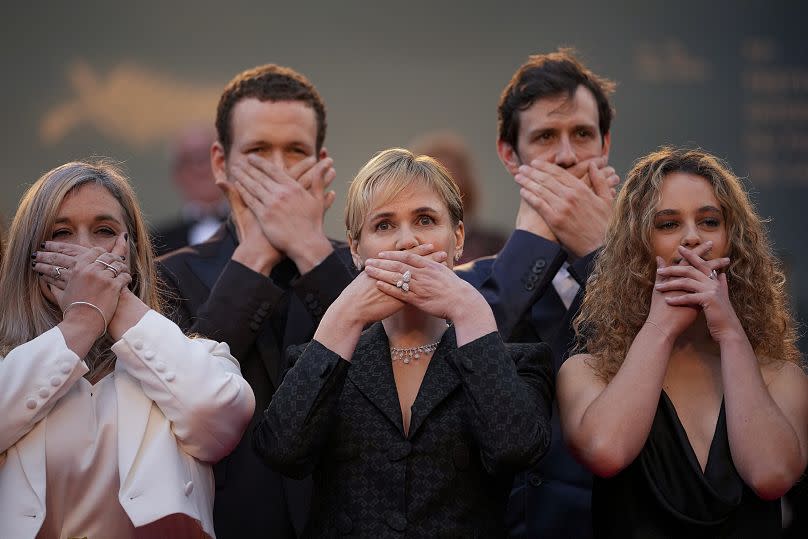
The build-up to Cannes this year was all about the threatened strikes from festival workers, and the rumoured bombshell #MeToo accusations set to rock the French industry. This was going to be one of the most politically charged editions yet, which was saying something, as Cannes is no stranger to agitation.
However, the end result was muted. There was little disruption from festival workers, whose work is invaluable for these festivals to function, and the #MeToo accusations dissolved. But as Coralie Fargeat stated in her acceptance speech for Best Screenplay for The Substance, the revolution is an ongoing thing, and it’s a brick-by-brick affair, as opposed to a standalone moment of reckoning.
As for any statements with regards to the humanitarian crisis in Gaza, there were some subtle callbacks (Cate Blanchett wore a black dress with white and green lining, which with the red carpet, resembled the Palestinian flag), a handful of overt calls (Laura Blajman-Kadar, a survivor of the Oct. 7 attacks, wore a yellow dress bearing images of Israeli hostages still being held and a sash reading “Bring them home”) and mentions during speeches, but real life atrocities were largely kept out of the Cannes bubble this year.
It seems thierry Frémaux got his wish of a scandal-free festival this year.
A merited win?
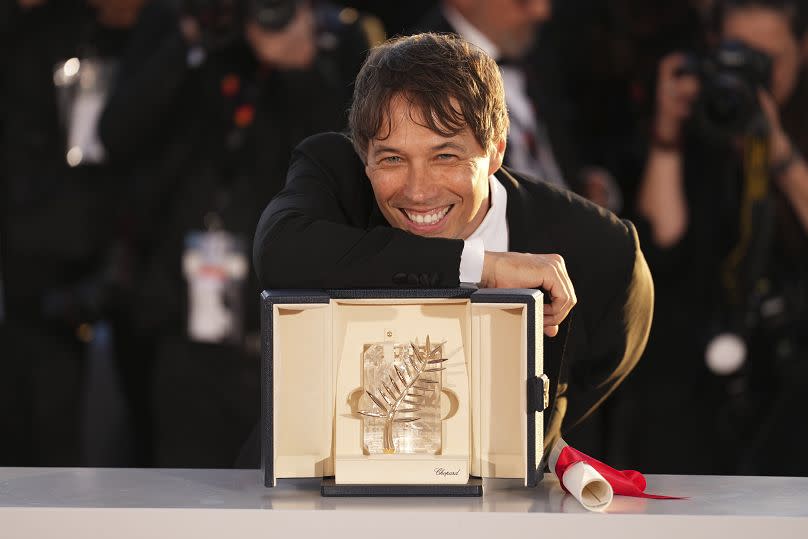
The festival came to a joyous conclusion when Greta Gerwig and her jury announced that Sean Baker’s Anora had won the Palme d’Or. It is a worthy winner: fast-paced, funny, moving – the lot. Baker became the first American director to win the festival’s top prize since Terrence Malick (The Tree of Life) in 2011. He dedicated the award to sex workers everywhere, a fitting tribute from a director who has put their lives at the centre of so many of his films (Starlet; Tangerine; Red Rocket). He also had some choice words for the “tech companies” behind the “streaming revolution”, declaring: “The future of cinema is where it started: in a movie theatre.” Bravo.
As euphoric as the film and its win were, there are some who felt that dissident and exiled Iranian filmmaker Mohammad Rasoulof should have taken home the Palme for his film The Seed of the Sacred Fig – a film shot entirely in secret and which would have been the more political choice. A missed opportunity? Perhaps, as this fable focusing on misogyny and paranoia deserved more than a special award. The Grand Prix could have been fitting. Still, it was a double-edged sword, as a win could have led some less charitable or reactionary commentators to suggest that it was all telegraphed with a purely political statement in mind. Still, Rasoulof’s presence at the festival was one of Cannes’ most emotional and empowering moments, a meaningful act of bravery in the name of justice, rebellion, and art.
The double success of Emilia Pérez

What seemed like a mess on paper was a triumph in execution. Jacques Audiard’s Emilia Pérez, a Mexico-set gangster trans musical featuring gender transitioning, cartels, gorgeous choreographies and songs about vaginoplasty was an explosion of joy, as well as a unanimous hit.
Zoe Saldaña, Karla Sofía Gascón, Selena Gomez and Adriana Paz took home the Best Actress award as an ensemble cast, with Gascón becoming the first trans performer to take the prize in Cannes. The decision was made because the film celebrated sisterhood, according to the jury. Some were disappointed that the award wasn’t given to Gascón on her own, but the collective recognition of all female performers here was merited, and even sent a message about cis / trans solidarity.
Then, the film nabbed a second award: the Jury Prize. It’s a rare occurrence in Cannes, as once a film secures one of the main prizes, it takes itself out of the running for a second.
So, congrats to Audiard, who had previously won the Palme d’Or in 2015 for Dheepan. However, was that Jury Prize really necessary? We were hoping that The Substance would win it, or that the likes of Andrea Arnold’s Bird and Magnus von Horn’s The Girl With The Needle could have a look-in, as both these standouts went home empty-handed.
Trump crashes the party

Ali Abbasi’s The Apprentice was a hyped title this year, a film chronicling the rise of Donald Trump as a New York real estate baron. The performances were great, and never fell into SNL caricature; the story was compelling; and the soundtrack featured some period-appropriate tunes.
However, several scenes caused a stir – especially for the tangerine menace, who has threatened to sue. The moments in question see Trump raping his first wife, Ivana; the scene in which he gets liposuction and a scalp reduction proceedure for his fading hairline; and even a moment of erectile disfunction.
During their real-life divorce proceedings, Ivana accused Trump of raping her, although she later retracted the allegation prior to her ex-husband's run for president. Speaking to Vanity Fair before the premiere, Abbasi had said the aim was "to do a punk rock version of a historical movie... [not] get too anal about details and what's right and what's wrong".
Trump's campaign communications director Steven Cheung said legal action would be taken "to address the blatantly false assertions from these pretend filmmakers".
While in no way a hit job against Trump, the film is clearly too much for the MAGA crowd (even before they've seen it) and the famously thin-skinned Trump. Especially on an election year. Or any year, come to think of it.
Nudity is back
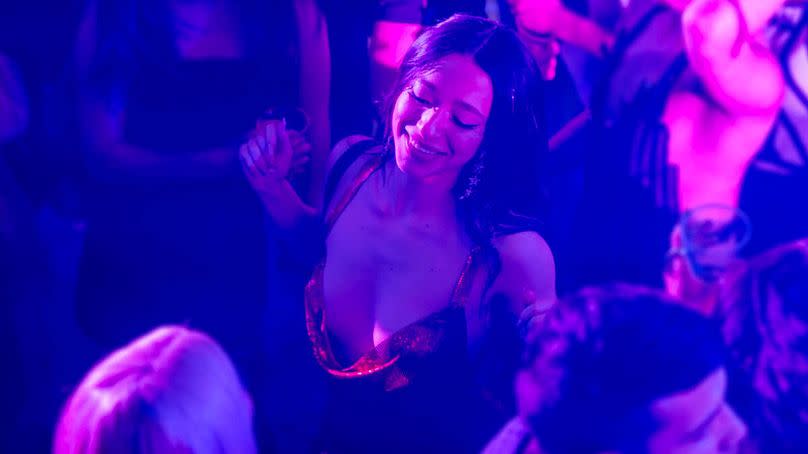
From Kinds of Kindness to The Balconettes, via Wild Diamond, Motel Destino, The Substance and Anora, there was a lot of nudity on screen this year, making this edition one of the most sexually charged in recent memory.
However, while there is a common kneejerk reaction to morally inspect films – especially when it comes to assessing nudity, the “male gaze” and with the ongoing conversation regarding the (vital) work of intimacy coordinators on set, these depictions of nudity and sex never felt gratuitous. They fully served the narratives and themes regarding aging, sex work, influencer culture, cautionary fetishization, beauty worship and love.
So, are audiences and critics getting more prudish?
Less is more
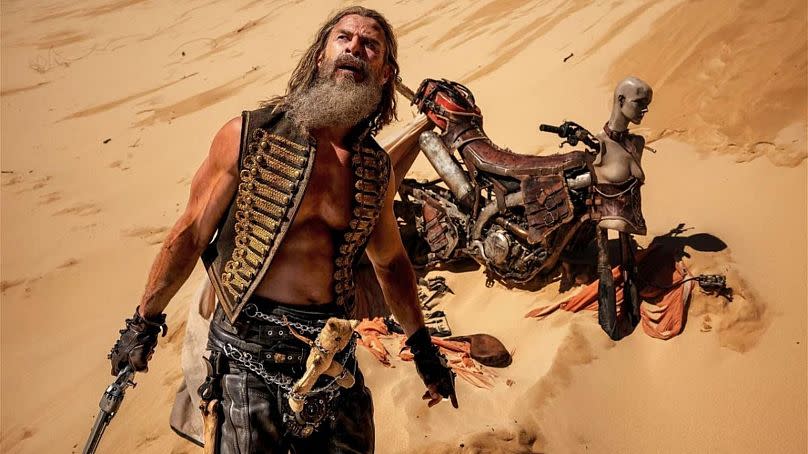
A common theme this year is that no matter the highlight or lowlight, the films could have all done with a bit of a trim.
10 minutes here, 20 minutes there... Even the shorter ones needed an edit.
Whether you loved Furiosa or not, it’s baggy. Rumours was hilarious but would have functioned better as an 80-minute satire. And even the excellent The Substance felt like it could have been tighter with 10 minutes off.
Less is definitely more.
Bury the titans?
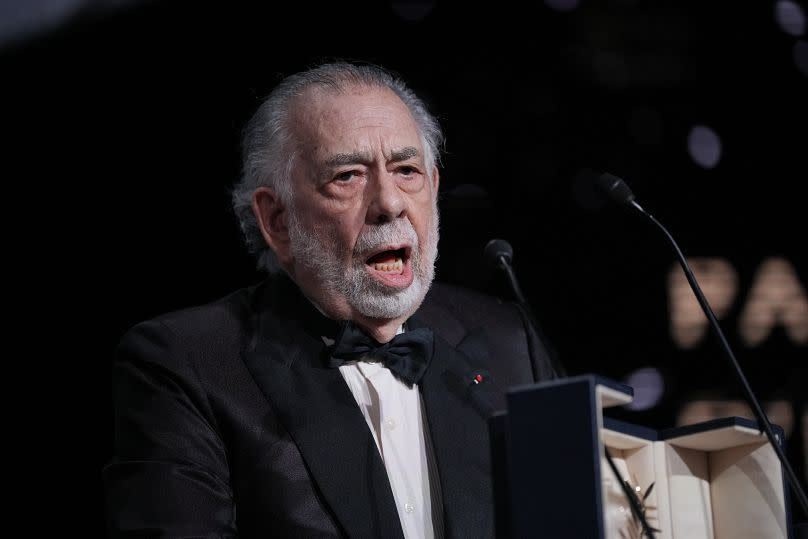
There were a lot of old masters this year in Competition and Out of Competition, and aside from a few exceptions, their output was disappointing.
No one is saying there should be an age limit, or failing to understand that their presence in Cannes is important for the festival’s profile. However, some inclusions should not have made it into Competition, slots which could have gone to less obvious choices or to more female voices, as 4 out of 22 titles this year feels like another letdown.
Whether it’s Francis Ford Coppola’s hubristic folly Megalopolis; Kevin Costner’s patience-testing Horizon: An American Saga; David Cronenberg’s continued downfall trajectory with The Shrouds; Paul Schrader’s Oh, Canada (a significant step down from his trilogy of dramas about male redemption – First Reformed, The Card Counter and Master Gardener); or even Jia Zhangke’s Caught By The Tides (a fascinating film which nonetheless feels like it requires homework if you’re not familiar with the Chinese director’s oeuvre), this year showed that just because you’re a festival mainstay and have directed classics, it does not mean that your newest project is automatically deserving of praise or a pass because of past triumphs.
Maybe the Cannes Film Festival can set up a special sidebar? Then everyone’s happy.
No one can resist Yórgos

Yórgos Lánthimos was back in festivals, just one year after his Venice Golden Lion and Oscar-winning Poor Things. And his newest, Kinds of Kindness, won yet another prize (Best Actor for Jesse Plemons), meaning that film festivals just can’t resist the charms of the Master of the Greek Weird Wave.
Every film he has submitted to either Cannes or Venice has won a prize: Dogtooth (Un Certain Regard Palme – 2009); Alps (Best Screenplay in Venice - 2011); The Lobster (Cannes Jury Prize – 2015); The Killing of a Sacred Deer (Cannes Best Screenplay – 2017); The Favourite (Grand Jury Prize in Venice - 2018); Poor Things (Gold Lion in Venice - 2023).
All that’s missing is Best Actress and Best Director. And we wouldn’t put it past him to nab those two in the next decade. Μπράβο, Yórgos.
And you, dear reader - get betting for the next time he's selected.
NEON – Five for five
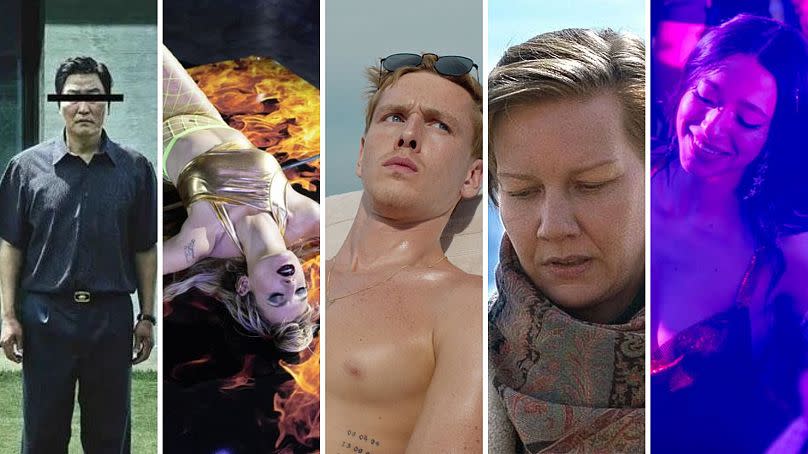
The New York-based indie movie outfit has been dubbed "the Palme d'Or whisperer", and for good reason. It’s current track record is making the world's most powerful movie producers turn green with envy.
Is anyone checking whether A24 is alright?
Parasite (2019), Titane (2021), Triangle of Sadness (2022) and Anatomy of a Fall (2023) - the last four winners in Cannes, since the 2020 edition was cancelled because of COVID - were all released in US theatres by NEON, under deals struck before they won the prize.
And they’ve done it again with Anora, as they bought North American rights to Sean Baker’s film weeks before Cannes kicked off, in a move that cements the company’s soothsaying reputation.
NEON also snapped up The Seed of the Sacred Fig, which won a Special Jury Prize, as well as Julia Ducournau’s “genre-defying” Titane follow-up Alpha, which should come out next year – and maybe feature in Cannes’ 78th edition.
Ticketing progress
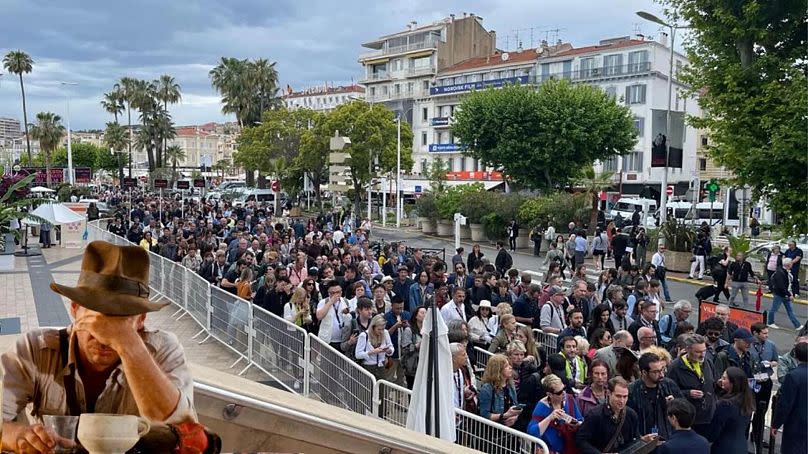
Last year’s edition of Cannes was a shambolic mess and the international press found it very hard booking tickets. Cannes head honcho Thierry Frémaux even had to apologise. And it seems the bellyaching did not fall on deaf ears, as this year’s online booking system worked like a dream. As long as you were online at 7am, you had every chance of securing your spot in the screenings you wanted. Chapeau, Cannes.
Stellar soundtracks

The songs featured in the Competition films were rather good. So much so, we did an Ideal Cannes Playlist piece to honour the art of the needle drop. Check it out here.
Shout-out to Miguel Gomes’ wonderful and poetic inclusion of Bobby Darin’s ‘Beyond The Sea’ at the end of Grand Tour, which failed to make the final cut because we forgot all about it! 37 films watched in 11 days – some details are bound to fall by the wayside.
Security guard troubles
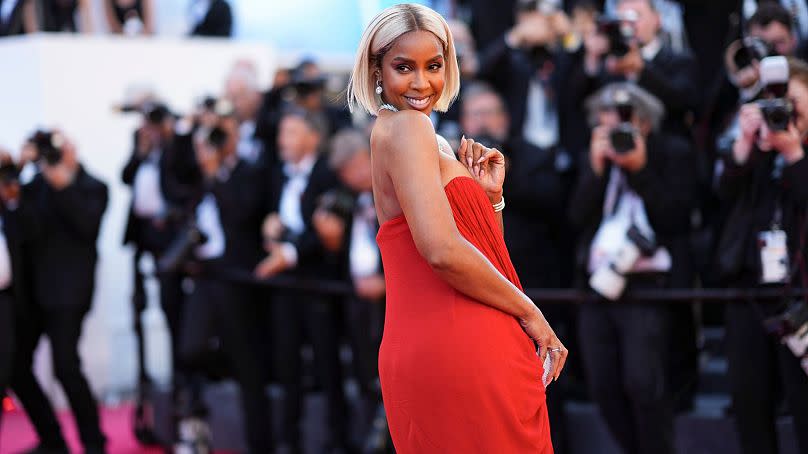
A female security guard was at the heart of a scandal this year, with a viral video showing ex-Destiny's Child Kelly Rowland posing for pictures on the red carpet before an apparent row broke out. Rowland said she was treated differently to other women on the red carpet. Worse, the security guard in question has prior form in Cannes, leading many to call for her dismissal.
A late-festival bit of gossip, granted, but it did briefly dominate the conversation.
That being said, many thanks to all the security and staff at the Croisette - whether in Debussy, Varda, the Grand Théâtre Lumière, or the Palais, their professionalism and kind words were always appreciated, and one bad appple shouldn't spoil the bunch.
There we have it.
Our full coverage of Cannes 2024 – news, reviews, interviews, and videos – can be found here. See you next year.


